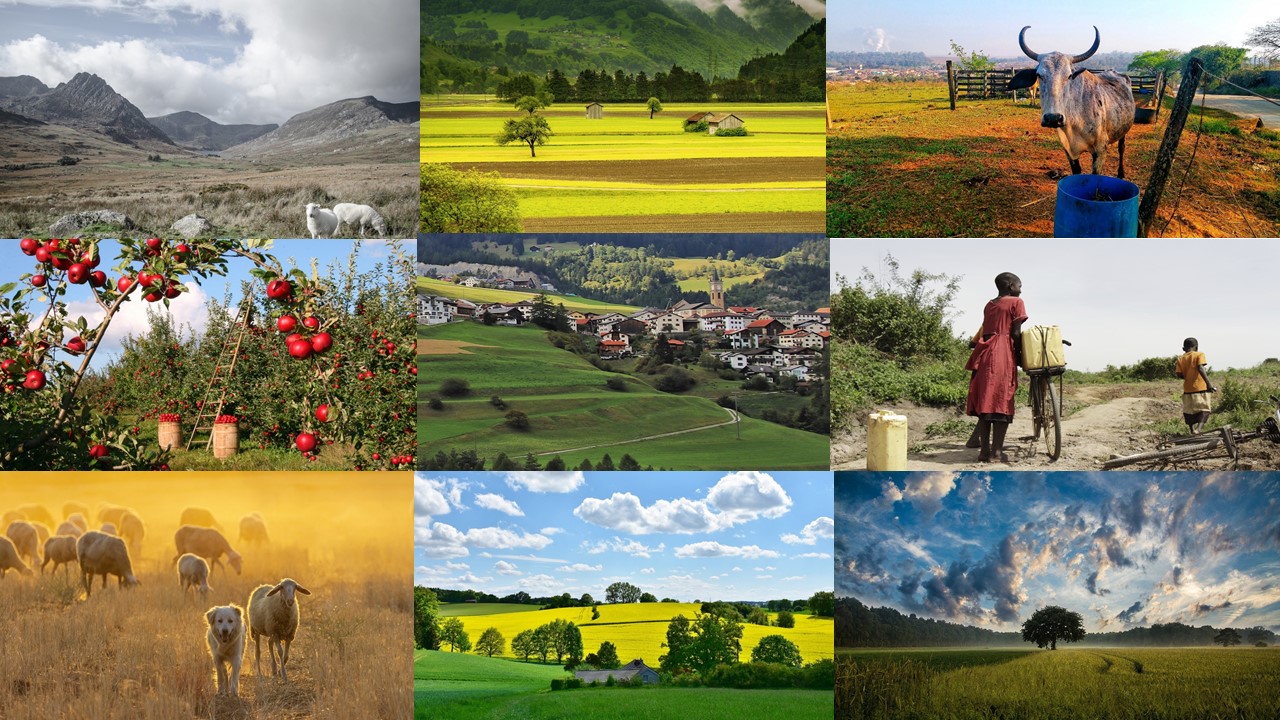Rural perspectives on crime and justice
A global analysis of victimization, safety and policing

What does violence against farmers in South Africa have in common with tractor thefts in Sweden? Rural areas are quite diverse not only geographically but also in terms of the safety challenges they face. Although some crimes are endemic, they do not exist in territorial compartments given that spaces are inextricably linked to each other across the rural-urban continuum, not only economically, but also socially and environmentally. In a globalized world, criminogenic networks may connect individuals without paying attention to borders, creating major challenges for crime prevention and policing. At the same time, rural crime is often underreported. This study builds on previous work by a large and increasing body of research on rural criminology that aims at characterizing the nature of victimization, people’s safety perceptions, policing and crime prevention practices in rural areas across the globe. The research is made up of individual jurisdiction-specific studies, which touch on people’s attitudes to the following themes:
1. Crime and victimization
2. Safety and fear
3. Practices of policing and police trust
4. Crime prevention practices
Society relevance
In the proposed study, we cast a global and comparative look at crime and safety in rural areas, by reporting survey findings from case studies from all continents other than Antarctica. The study has the potential to suggest common a set of tailored appropriate prevention measures to reduce the opportunities for victimization in rural contexts. This study is based on a large and growing interest in safety in areas of the rural-urban continuum which lacking in the international criminological literature.
Collaborators from the following countries are involved in this ground-breaking project
Data has already been collected in some of these countries; for other jurisdictions, collaborators are at various stages of individual project planning:
| Germany | Kenya | South Africa | United States | |
| Argentina | India | Nigeria | Spain | |
| Brazil | Ireland | Portugal | Sweden | |
| Chile | Japan | Slovenia | United Kingdom |
Results
The book Crime, Peoples and Places: Perspectives on Rural Safety and Justice summarises the results of this global research project. The book includes a series of jurisdiction-specific chapters which present both data and analysis, and which provide a comparative analysis of these themes across each of the jurisdictions. Building on previous work in rural criminology, the book casts a global and comparative look across 19 countries, drawing on themes of crime and victimisation, safety and fear, practices of policing and police trust, and crime prevention practices. Combining reports on survey findings, country case studies, and crosscutting analyses, Crime, Peoples and Places offers empirical, theoretical, and policy-oriented contributions to the field of rural criminology, adopting the notion of a rural-urban continuum that captures the nuances of places of varied nature, spanning from remote and desolate spaces to accessible and connected environments of the urban fringe. The book examines the challenges of areas on the rural-urban continuum that are in constant transformation, given local and global influences, including the most recent developments in countries of the Global South. It identifies commonalities and disparities between different country cases, draws conclusions over global evidence, and highlights how partnerships, collaboration, and unity in crime prevention action can yield dividends for all people, regardless of age, gender, or whether they live in urban or rural areas.
Chapters 1, 23, 26, 28, and 30 of this book are freely available as a downloadable Open Access PDF at http://www.taylorfrancis.com under a Creative Commons Attribution (CC BY) 4.0 International license, see below:
-
Victimisation, safety and policing in areas on the rural-urban continuum
-
Searching for patterns of victimisation and safety perceptions in rural areas in four countries
-
Situational precipitators of environmental and wildlife crimes in Namibia and Sweden
-
Future directions for rural crime research, policy and practice
Case studies in selected countries were presented in workshops and conferences from 2022 to 2025.
Coordination
Prof Vania Ceccato, KTH Royal Institute of Technology, Sweden, email: vania.ceccato@abe.kth.se
Dr Alistair Harkness, University of New England, Australia, email: alistair.harkness@une.edu.au
